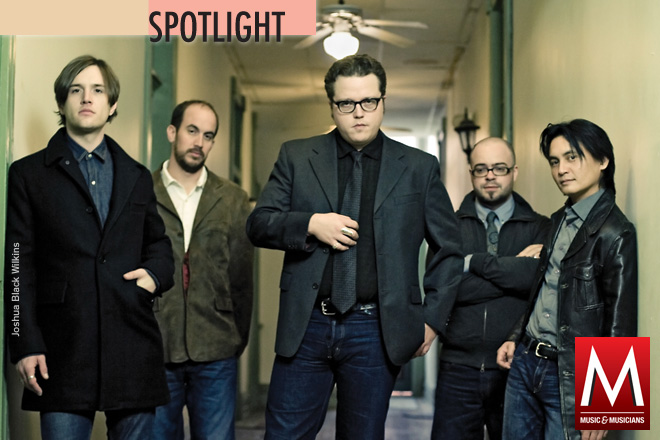JASON ISBELL
The feeling, the fever, the folks, the fiddles, a farewell and the 400 Unit
Jason Isbell is not feeling well. “I’m always kind of glad to get sick at home,” he says optimistically, “because I don’t want to mess with it when I’m on the road.” He’ll have to get out of his sickbed soon, like it or not—he and his backup group the 400 Unit have just completed their new album, and a series of high-profile gigs awaits. The album’s title, Here We Rest, is more than a little ironic given Isbell’s current condition, but the title has nothing to do with R&R—it’s the original motto of his home state of Alabama, where he was raised and still resides. It’s there he found the inspiration for his latest set of songs, among some of the people hardest hit by America’s economic meltdown. “You have to pay attention to the folks around you,” Isbell says. “The best stories come from people who are miserable. There’s a lot of worth in what people say—in bars, at ballgames—just regular people who aren’t by definition creative.”
The weathered Here We Rest is relatively low-key compared to the fire and fury of Isbell’s previous albums. Fiddles, accordion and acoustic guitars dominate the proceedings, and on songs like “Alabama Pines,” “Codeine” and “Tour of Duty,” it’s easy to imagine Isbell and his bandmates—keyboardist Derry deBorja, bassist Jimbo Hart, guitarist Browan Lollar and drummer Chad Gamble—hanging out on a back porch on a Sunday. “The arrangements were in service to the songs themselves,” Isbell explains. “It wasn’t a concerted effort by the band to make a more rootsy record, but once the songs were there that’s what they asked for. We just tried to have a good time recording a bunch of sad songs.”
In fact, Isbell owes his career to the fact he’s a son of the South. An early association with some of the region’s most prominent players led to an introduction to fellow singer-songwriter Patterson Hood and an invitation to join his band, the Drive-By Truckers. A six-year stint with the Truckers found him contributing to three albums prior to his amicable departure in 2007. “It was like stepping off the edge,” Isbell recalls. “It’s almost like having a kid—you may not be prepared, but it doesn’t really matter. What has to happen just happens.” He doesn’t regret his decision. “When something works and I know how much I put into it,” he says, “it feels really good.”
–Lee Zimmerman




comment closed